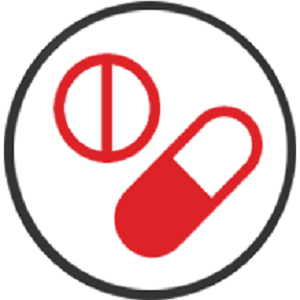Sleeping Without a Prescription: Unveiling the Truth about Direct Sleeping Tablets
Sleep is a fundamental aspect of our daily lives, contributing to our physical and mental well-being. However, for many individuals, achieving restful sleep can be elusive due to various factors, such as stress, anxiety, or irregular sleep patterns. To address sleep disturbances, some turn to direct sleeping tablets, also known as over-the-counter (OTC) sleep aids, as a convenient and accessible solution. In this article, we uncover the truth about direct sleeping tablets, examining their benefits, potential risks, and considerations for using them safely and effectively.
1. The Rise of Direct Sleeping Tablets
Direct sleeping tablets have gained popularity in recent years as people seek non-prescription alternatives to manage sleep difficulties. These OTC sleep aids are readily available at pharmacies, allowing individuals to obtain them without the need for a doctor's prescription.
2. The Active Ingredients in Direct Sleeping Tablets
The primary active ingredients in direct sleeping tablets are typically antihistamines, which are commonly found in allergy medications. These antihistamines, such as diphenhydramine and doxylamine succinate, have sedative effects, which can help individuals fall asleep faster. By blocking histamine, a neurotransmitter that promotes wakefulness, these medications induce drowsiness and promote sleep onset.
3. Effectiveness for Sleep Initiation
Direct sleeping tablets can be effective in promoting sleep initiation, helping individuals fall asleep faster when taken as directed. For those experiencing occasional sleep disruptions caused by factors like jet lag or temporary stress, these sleep aids may provide short-term relief and help regulate sleep patterns.
4. Limitations and Side Effects
While direct sleeping tablets offer accessible sleep solutions, they do come with limitations and potential side effects:
a. Short-term Use: Direct sleeping tablets are generally recommended for short-term use to manage occasional sleep disturbances. Prolonged or frequent use may lead to tolerance and reduced effectiveness.
b. Daytime Drowsiness: Some individuals may experience residual daytime drowsiness or reduced alertness after taking direct sleeping tablets, affecting daily functioning.
c. Cognitive Impairment: In some cases, these medications can cause cognitive impairment, affecting memory, concentration, and reaction times.
d. Drug Interactions: Direct sleeping tablets may interact with other medications, including prescription drugs and over-the-counter medications, leading to potentially harmful effects.
5. Safe and Responsible Use
To ensure safe and responsible use of direct sleeping tablets, individuals should consider the following:
a. Consultation with Healthcare Professional: Before starting any sleep aid regimen, especially if there are underlying health conditions or medications being taken, it is crucial to consult with a healthcare professional.
b. Follow Dosage Guidelines: Adhere to the recommended dosages and avoid increasing the dosage without medical guidance.
c. Avoid Alcohol: Alcohol can intensify the sedative effects of direct sleeping tablets, leading to increased drowsiness and potential side effects.
d. Short-term Use: Limit the use of direct sleeping tablets to short-term periods to avoid tolerance and dependence.
6. Complementary Sleep Strategies
To maximize the effectiveness of direct sleeping tablets and promote better sleep, individuals can adopt complementary sleep strategies:
a. Sleep Hygiene: Establish a consistent sleep schedule, create a calming bedtime routine, and optimize the sleep environment to enhance sleep quality.
b. Stress Management: Practice relaxation techniques, meditation, or mindfulness to alleviate sleep disturbances caused by stress and anxiety.
c. Limit Stimulants: Reduce or eliminate caffeine and nicotine intake, especially close to bedtime.
Conclusion
Direct sleeping tablets can offer a convenient solution for occasional sleep disruptions, allowing individuals to manage short-term sleep difficulties without a prescription. While they can be effective when used judiciously, it is essential to be aware of their potential limitations and side effects.
For chronic sleep problems or underlying sleep disorders, seeking professional guidance, such as cognitive behavioral therapy for insomnia (CBT-I), can provide more sustainable improvements in sleep quality. Additionally, adopting healthy sleep habits and complementary sleep strategies can contribute to long-term improvements in sleep and overall well-being.
Remember that individual responses to sleep aids can vary, and it is essential to prioritize safe and responsible use. Consultation with a healthcare professional and self-awareness about sleep patterns and needs can help individuals make informed decisions about using direct sleeping tablets for a good night's sleep.


Comments
Post a Comment